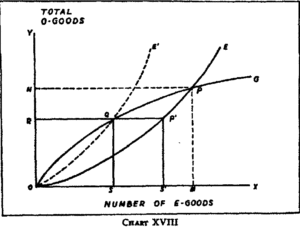… is from page 225 of David Boaz’s excellent 2015 book, The Libertarian Mind:
One of the important applications of the principle of comparative advantage is international trade. To an economist there is nothing really special about international trade; individuals make trades when both of them expect to benefit, whether they live across the street, in different states, or in different countries.
DBx: This short passage is about as good a summary of the economics of international trade as there can be. Trade is trade, and there’s nothing at all about political borders that causes the nature or consequences of trade to change. The essence of the benefits from trade that arise from trading with people across town arise no less surely from trading with people across an ocean. And any problems commonly identified as reasons to restrict or to stop trading with people across an ocean arise no less surely from trading with people across town.
I especially like the way David Boaz opens this passage. International trade is simply one application of the principle of comparative advantage. Each and every individual (person or firm) enjoys a comparative advantage in producing some service or good over nearly every other individual and firm on the planet. Comparative advantage is no less an essential part of the reason why you specialize as you do and trade with some of the people in your town as it is a part of the reason why you specialize as you do and trade with some of the people in China.
It’s regrettable that David Ricardo introduced the principle of comparative advantage in the chapter of his Principles titled “On Foreign Trade” and used for his illustrative example two countries – England and Portugal – as the two trading parties. In fact, comparative advantage exists at the level of the individual producer – worker or firm – and not originally or in any unique way at the level of the country. Whatever comparative advantage we might sensibly speak of a country having is nothing other than the composite comparative advantages of the producers within its borders. (When I teach economic principles, the very first piece of formal economic analysis that I share with my students is the principle of comparative advantage. I use this principle to reveal an essential part of the reason why individuals specialize and trade – and, so, in my example the two specialists are individuals, not countries.)
As I’ve argued before, I suspect that the world would be a better place had there never been a speciality in economics called “international trade.” The existence of such a speciality conveys the mistaken impression that there is something unique about the essentials of international trade compared to purely domestic trade. But no such uniqueness exists.  For another example, consider that the same reciprocal demand, or “offer,” curves that every student of international trade encounters can be used with no less validity and good effect to explain trade between blue-eyed people and brown-eyed people of the same country as they can be used to explain trade between the people of the United States and the people of Guatemala.
For another example, consider that the same reciprocal demand, or “offer,” curves that every student of international trade encounters can be used with no less validity and good effect to explain trade between blue-eyed people and brown-eyed people of the same country as they can be used to explain trade between the people of the United States and the people of Guatemala.



